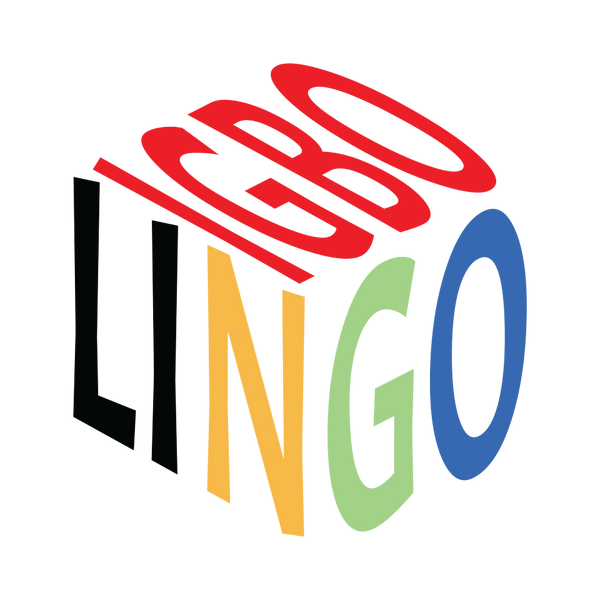
Mastering Igbo and Yoruba: Effective Language Learning Strategies
Share
Embarking on a journey to learn a new language is an exciting and rewarding endeavor. For those delving into the depths of Igbo and Yoruba languages, rich with history, culture, and vibrant expressions, the adventure promises an exploration of traditions and connections. Whether you're a beginner eager to start or an intermediate learner seeking to enhance your skills, mastering Igbo and Yoruba requires dedication, practice, and the right strategies. Let's delve into some effective language learning approaches tailored specifically for these captivating languages.
- Immerse Yourself in the Culture
Language and culture are deeply intertwined. To truly grasp the essence of Igbo and Yoruba languages, immerse yourself in the cultures they represent. Dive into literature, music, films, and traditional stories. Attend cultural events, festivals, and gatherings where these languages are spoken. This immersion not only enhances your vocabulary but also provides insights into cultural nuances and expressions.
- Start with the Basics: Alphabets and Pronunciation
Before delving into complex grammar and vocabulary, familiarize yourself with the alphabets and pronunciation rules of Igbo and Yoruba. Both languages have unique sounds that may differ from those in English. Practice speaking aloud, paying close attention to tones in Yoruba and tonal patterns in Igbo. Resources such as online tutorials, language apps, and audio guides can be invaluable for mastering these foundational elements. Our flashcards come with pronunciation guides to help you sound authentic. The Igbo and Yoruba Digital Companions have native speakers pronouncing each term so you can hear how the words are supposed to sound.
- Utilize Language Learning Apps and Online Resources
In this digital age, a plethora of language learning tools are at your fingertips. Online platforms such as YouTube channels, language blogs, and forums provide additional resources, including pronunciation guides, grammar explanations, and cultural insights. Apps like Duolingo are great but they do not offer Igbo or Yoruba languages. Fortunately, our Igbo and Yoruba flashcards are available in digital format along with audio. Incorporate these tools into your daily routine for consistent and engaging learning.
- Practice with Native Speakers
There is no substitute for conversing with native speakers when learning a language. Seek out language exchange partners, join online language communities, or attend language meetups in your area. Engaging in conversations allows you to apply your knowledge in real-life scenarios, improve your fluency, and gain valuable feedback on pronunciation and usage. Many native speakers are also enthusiastic about sharing their culture and language nuances with learners.
- Use Flashcards for Vocabulary Building
Building a robust vocabulary is key to language proficiency. Use our flashcards and digital companions to memorize Igbo and Yoruba words and phrases. Our flashcards are grouped by themes such as family, body parts, numbers, and people to aid retention. Regularly review and quiz yourself to reinforce your memory. Additionally, labeling everyday items in your home with Igbo or Yoruba words helps associate language with daily life experiences.
- Immerse Yourself in Conversational Practice
Beyond structured lessons, immerse yourself in conversational practice. Engage in role-playing scenarios, narrate daily activities in Igbo or Yoruba, or write short stories or journal entries in the target language. Practicing speaking, listening, reading, and writing regularly helps develop all facets of language skills and builds confidence in communication.
- Embrace Cultural Exchanges and Travel
For those with the opportunity, travel to Nigeria to experience language and culture firsthand. Immerse yourself in local communities, participate in language workshops, and engage with native speakers. If travel isn't feasible, seek out organizations like Umu Igbo Unite or Omo Yoruba, language immersion events, or cultural festivals that offer glimpses into the vibrant worlds of Igbo and Yoruba cultures.
- Stay Motivated and Celebrate Milestones
Language learning is a journey with ups and downs. Stay motivated by setting achievable goals, such as learning a certain number of words per week or holding a conversation in Igbo or Yoruba with a native speaker. Celebrate your progress, no matter how small, and acknowledge the effort you've put into mastering these beautiful languages.
In conclusion, mastering Igbo and Yoruba languages is a fulfilling endeavor that opens doors to vibrant cultures, traditions, and connections. By immersing yourself in culture, mastering pronunciation, utilizing language learning tools, practicing with native speakers, building vocabulary, engaging in conversational practice, embracing cultural exchanges, and staying motivated, you can embark on a successful language learning journey. Whether you're learning for personal enrichment, professional opportunities, or cultural appreciation, the richness of Igbo and Yoruba languages awaits your exploration.
Are you ready to embark on your Igbo or Yoruba language learning journey? Share your favorite language learning strategies or experiences in the comments below! Let's inspire and support each other on this linguistic adventure.
